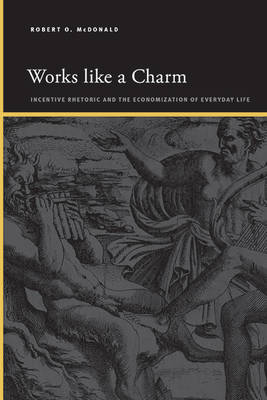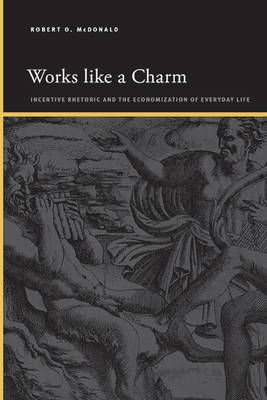
- Afhalen na 1 uur in een winkel met voorraad
- Gratis thuislevering in België vanaf € 30
- Ruim aanbod met 7 miljoen producten
- Afhalen na 1 uur in een winkel met voorraad
- Gratis thuislevering in België vanaf € 30
- Ruim aanbod met 7 miljoen producten
Omschrijving
Breaks the spell of economic thought by interrogating the widespread language and logic of "incentives" in public life from a Lacanian perspective.
Works like a Charm addresses a simple question: Why are "incentives" everywhere now? From inducements to work harder at our jobs to tax rebates for corporations, "incentive" names a general theory of motivation-according to economists, we are incentive-driven creatures. Yet far from being a neutral generalization, this understanding of human behavior smuggles in a quintessentially economic way of seeing the world. Works like a Charm applies Jacques Lacan's psychoanalytic concept of retroactive causality to explain the metastasis of the language and logic of incentives: To discover an incentive is to place in the untouchable past an economic cause for a contextual, historical force. Tracing "incentive" from its roots in antiquity to its uptake by neoclassical and then Chicago-school economists, Robert O. McDonald diagnoses the spread of incentives across the social, cultural, and political field and warns readers of the dangers of handing over causality to the economists.
Specificaties
Betrokkenen
- Auteur(s):
- Uitgeverij:
Inhoud
- Aantal bladzijden:
- 308
- Taal:
- Engels
- Reeks:
Eigenschappen
- Productcode (EAN):
- 9781438494098
- Verschijningsdatum:
- 1/08/2023
- Uitvoering:
- Hardcover
- Formaat:
- Genaaid
- Afmetingen:
- 152 mm x 229 mm
- Gewicht:
- 621 g

Alleen bij Standaard Boekhandel
Beoordelingen
We publiceren alleen reviews die voldoen aan de voorwaarden voor reviews. Bekijk onze voorwaarden voor reviews.











